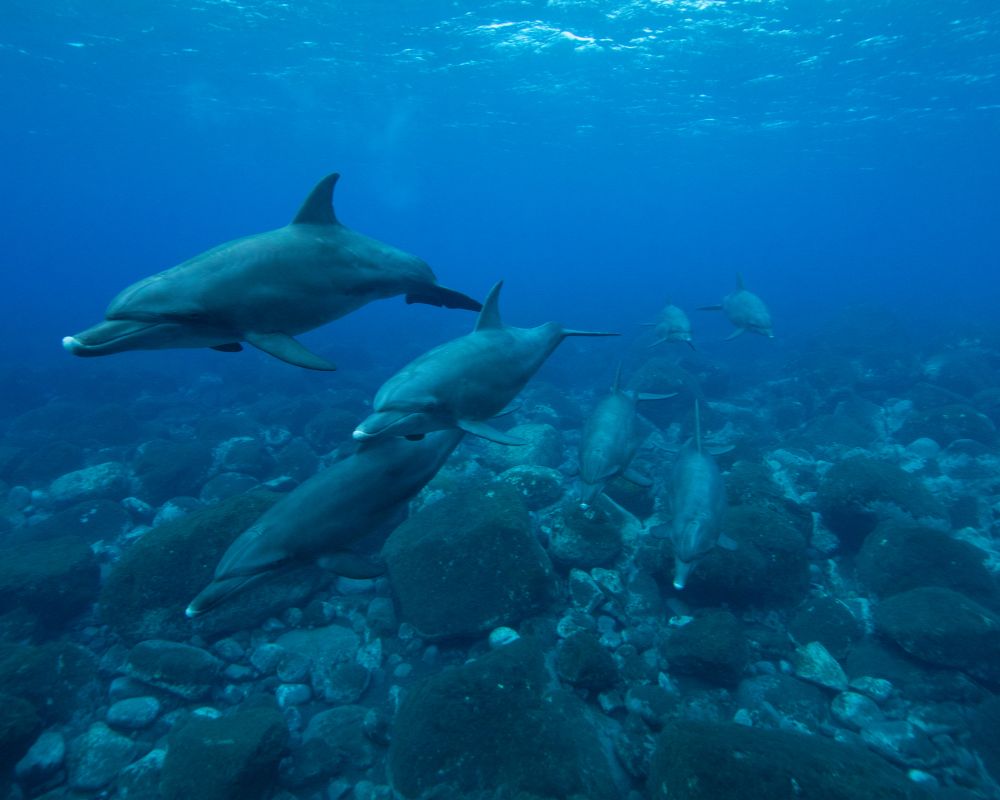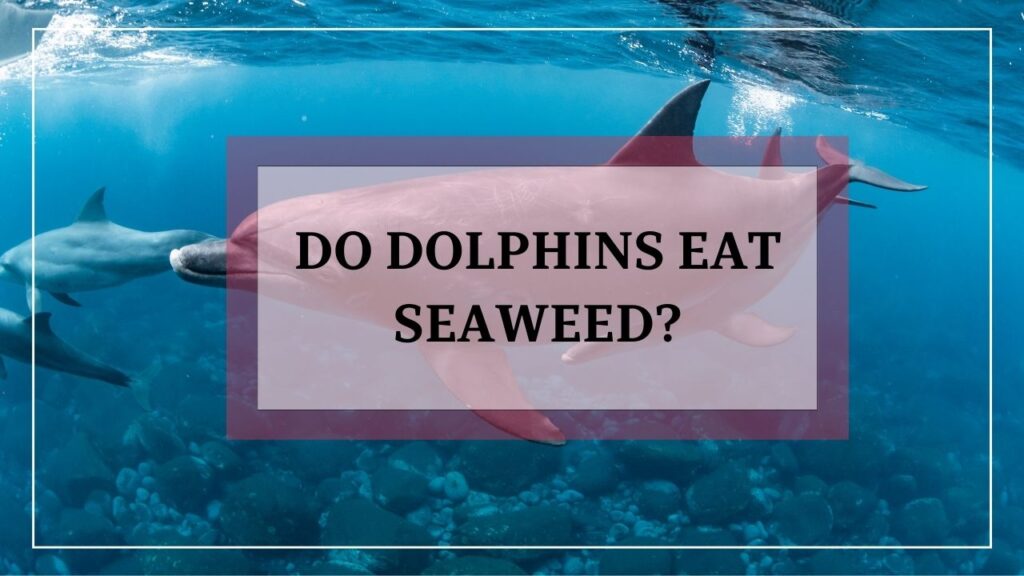Ah, dolphins. Is there anything more magical than watching these graceful creatures frolic in the waves? I don’t think so. But as much as we love them, there’s still so much we don’t know about these intelligent mammals.
One question that often comes up is whether or not dolphins eat seaweed. So, let’s explore the fascinating world of dolphin nutrition and see if they have a taste for seaweed!
Do Dolphins Eat Seaweed?

The answer to this question is a bit complicated. While dolphins are known to have diverse diets that include fish, squid, and crustaceans, seaweed is not typically a common part of their menu.
Research on dolphin diets has shown that they are opportunistic feeders, meaning they will eat whatever is available to them in their environment.
In some cases, this may include seaweed. Some dolphins have been observed consuming small amounts of seaweed, especially in areas where it is abundant.
However, there are several reasons why dolphins may not eat seaweed as a regular part of their diet. First, seaweed is not as nutrient-dense as other foods that dolphins typically consume.
Second, it may be difficult for dolphins to digest the tough, fibrous nature of seaweed. Finally, seaweed can contain toxins or other harmful substances that could be harmful to dolphins.
So, while some dolphins may occasionally snack on seaweed, it is not a staple in their diet. Instead, they tend to stick to more nutrient-rich and easier-to-digest food sources like fish and squid.
Overall, it’s important to remember that dolphins have complex dietary needs that vary depending on their location and species. While they may not eat seaweed regularly, they do require a diverse range of foods to stay healthy and thrive in their ocean habitats.
Why Do Some Dolphins Eat Seaweed?
Now, we know that dolphins don’t typically munch on seaweed as a regular part of their diet. But have you ever wondered why some dolphins may choose to nibble on it every once in a while?
Well, one reason could be that seaweed offers some benefits to dolphins that they can’t get from their usual food sources.
Some types of seaweed contain compounds that can help with digestion, which could be really helpful if a dolphin has eaten something that is hard to digest.
Plus, seaweed can contain important nutrients like vitamins and minerals that might not be found in their typical prey.
But, let’s not forget about taste! Just like us, dolphins may have their own unique food preferences, and some individuals might just really enjoy the taste of seaweed.
It’s important to keep in mind that each dolphin has their own unique dietary needs and preferences. While some may occasionally snack on seaweed, it’s not necessarily the best choice for every individual.
So, while seaweed may offer some benefits, it’s not a one-size-fits-all solution for dolphins.
Potential Risks of Seaweed Consumption for Dolphins
While there are some potential benefits to seaweed consumption for dolphins, there are also some risks to keep in mind. Some types of seaweed can contain toxins that could harm a dolphin if consumed in large quantities.
Additionally, some types of seaweed may be indigestible or difficult to digest, which could lead to gastrointestinal issues or blockages.
It’s important to note that these risks can vary depending on the species of dolphin and the type of seaweed consumed.
For example, some species of dolphins may be better equipped to deal with certain toxins or digest certain types of seaweed.
Additionally, the quantity of seaweed consumed could also play a role in determining the potential risks.
So, while seaweed can offer some benefits to dolphins, it’s important to approach it with caution and be aware of the potential risks.
As with any dietary choice, it’s important to consider the individual needs and preferences of each dolphin to ensure their health and well-being.
Conclusion
So, do dolphins eat seaweed? The answer is yes, but it’s not a common part of their diet. While some species of dolphins have been observed eating seaweed, it’s not clear why they do so and it’s not a significant part of their nutritional intake.
While seaweed can offer some potential benefits to dolphins, such as aiding digestion or providing nutrients not found in other food sources, there are also some potential risks to keep in mind.
Some types of seaweed can contain toxins or be indigestible, which could harm a dolphin if consumed in large quantities.
Overall, it’s important to approach seaweed consumption for dolphins with caution and to consider the individual needs and preferences of each dolphin.

